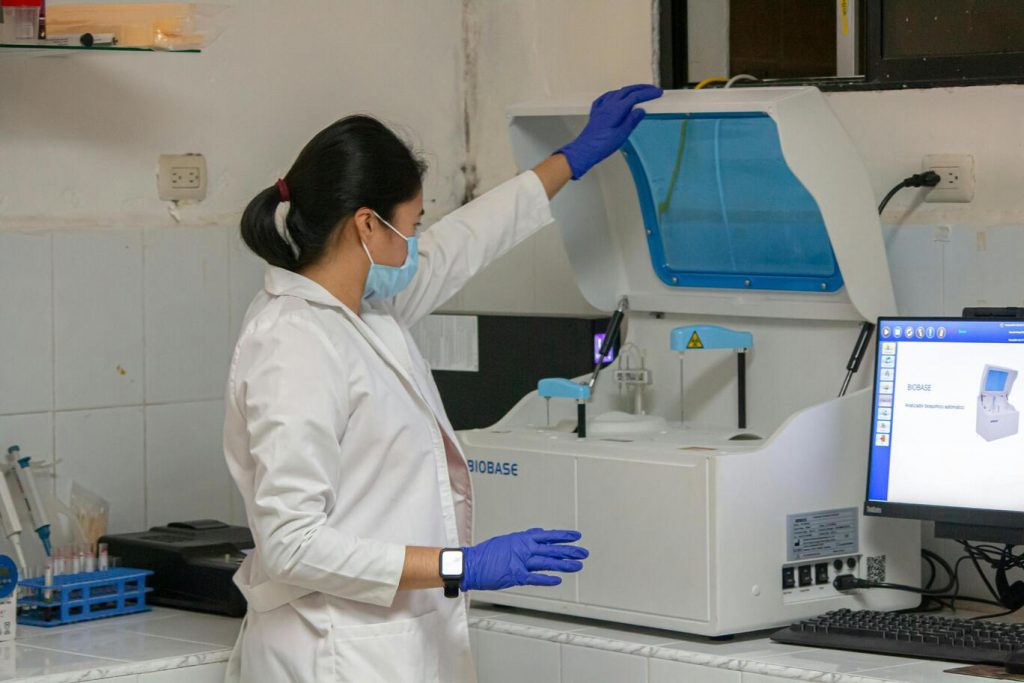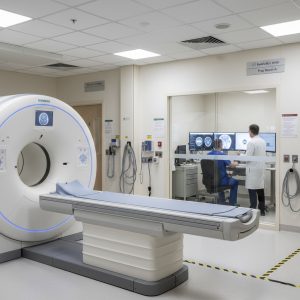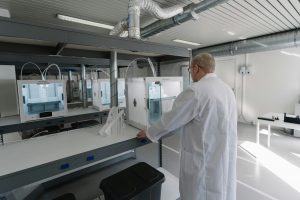Working as a biomedical engineer depends on more than maintaining medical devices. You need biomedical engineering technical skills and the ability to adapt as healthcare technology evolves to stay a reliable specialist.
But that’s just half the work. To succeed, you will also need a certain set of biomedical engineer skills that connects your technical expertise with the real needs of healthcare teams.
What Is Biomedical Engineering?
Appearing at the intersection of healthcare and engineering, biomedical engineering suggests applying certain engineering principles to design, develop, and maintain medical equipment for patient care.
The role goes beyond troubleshooting devices. It’s more about understanding how medical hardware and software integrate with hospital systems. This suggests constant adherence to regulatory requirements and collaboration with other teams, making advanced medical tools accessible for providers and patients. This combination of biomedical engineer duties and technical knowledge represents some of the most important skills needed for biomedical engineering, especially in settings heavily dependent on biomedical equipment repair and other technical support services.
Top 11 Biomedical Engineer Skills and Abilities
Combining engineering expertise with regulatory awareness and interpersonal abilities is just as important as the technical know-how. These are the biomedical engineering skills and abilities employers value most, and where your performance directly impacts patient care and hospital efficiency.

Strong Foundation in Principles of Engineering
Core engineering concepts, including mechanics, electronics, fluid dynamics, and material science, directly shape the design and functionality of medical equipment. Having a strong grasp of these fundamentals is an important biomedical engineering skill needed to diagnose problems faster and find solutions that fit the clinical environments and broader biomedical management practices.
While knowing how fluid mechanics works helps you support dialysis machines, you will also need to know how to apply the knowledge in a medical context.
Expertise in Technical Tools and Software
From CAD platforms to diagnostic testing devices, comfort with tools is a core part of biomedical engineering technical skills. Data analysis knowledge also boosts accuracy and efficiency across workflows, especially for tasks such as biomedical equipment calibration that require precision.
Knowledge of Regulatory Compliance Standards
Every piece of medical equipment handled meets strict regulatory standards. A key part of biomedical engineer qualifications is understanding U.S. Food and Drug Administration (FDA) guidelines and ISO standards. Strong knowledge of healthcare regulatory compliance equips you with compliance-focused skills needed for biomedical engineering in hospitals and labs.
Strong Problem-Solving Skills
When equipment fails, biomedical engineering skills and abilities such as structured problem-solving help identify issues and prevent risks. This also highlights why strong biomedical engineer qualifications go beyond technical knowledge alone. For instance, when an infusion pump stops working during a patient’s treatment, biomedical equipment technicians with strong problem-solving skills come into play to identify whether it’s the software, hardware, or user error. Specialized areas like infusion pumps and defibrillators repair demand this high level of diagnostic ability.
Research and Analytical Skills
Modern healthcare demands that the skills of a biomedical engineer include continuous learning. New devices and treatment methods demand constantly staying updated and being capable of analyzing complex information. Strong research skills help biomedical engineers to keep up with progressive scientific studies and manufacturer guidelines, thus contributing to smarter healthcare planning.
Systems Thinking
A systematic mindset is how biomedical engineers sync each device to a larger system, connecting patients, clinicians, IT infrastructure, and facility workflows. It is among the most strategic biomedical engineer skills needed today, as it ensures that solutions support the bigger healthcare picture. This means understanding how just one issue can affect the entire chain. Systems thinking is all about looking beyond the immediate task and assessing the broader effects. That’s how the role of a biomedical engineer becomes more strategic than purely technical.
Quality Assurance Skills
In the medical field, equipment can’t just work, it has to work every time. Quality assurance ensures consistency and reliability. Whether performing safety checks on imaging systems or verifying the response of emergency tools, quality assurance is a core responsibility. For devices like anesthesia systems, it ties directly into routine anesthesia machine servicing that keeps equipment ready for clinical use.
Quality assurance mainly comes down to documenting what you do and following the right procedures. In the long run, this is how you ensure patients receive safe and reliable care.

Communication Skills
When dealing with complex equipment, not everyone involved in the process will speak the same technical language. This means that explaining things in a simpler and more comprehensive way is one of the core skills of a biomedical engineer, and a huge part of a biomedical engineer’s job. While asking the right questions and explaining the issue in plain language, they help nurses and other staff members avoid bigger problems.
Clear communication also helps when you’re showing staff how to use something properly. A little clarity up front can prevent mistakes later. So even though you’re the “tech person,” the ability to break things down simply makes your work way more effective.
Collaboration Skills
Whether it’s working with doctors, nurses, IT staff, or even outside vendors, biomedical engineers should know how to work with people. Collaboration means accepting that each team member may have a different perspective, and aligning the technical solutions with them is an engineer’s main focus. It highlights how biomedical engineering skills and abilities extend beyond machines to human interaction. A physician may focus on diagnostic accuracy, while IT staff prioritize data security, and administrators weigh costs. The ability to connect such different priorities and find a common ground for collaboration makes new technology adoption more successful.
Collaboration becomes even more relevant when coordinating tasks with mobility and patient-handling teams, including areas such as hospital stretcher repair and maintenance, which directly affect bedside workflows.
Ability to Adapt to Evolving Technologies
Flexibility is an increasingly valuable biomedical engineer skill needed to stay competitive in fast-changing environments. As healthcare technology is among the most rapidly growing sectors worldwide, the role of a successful biomedical engineer suggests adapting to the changes to remain relevant and reliable. This skill influences your work by helping you respond quickly to emerging tools without disrupting patient care. For instance, with the introduction of robotic surgical equipment, top priorities include learning the new maintenance protocols and software updates within a short timeframe.
Knowledge of Ethical Standards
Ethical decision-making represents one of the most important biomedical engineer qualifications, ensuring patient safety and regulatory compliance. Strict ethical standards guide how biomedical engineers approach their responsibilities, from respecting patient privacy to making decisions that prioritize safety over convenience. This requires balancing technical efficiency with privacy requirements like HIPAA (Health Insurance Portability and Accountability Act). Ethical awareness reinforces trust between the biomedical engineers, healthcare professionals, and patients.
How to Upskill as a Biomedical Engineer
- Take courses on emerging areas like AI in healthcare or medical robotics.
- Earn credentials in quality management or regulatory compliance.
- Read recent studies and technical papers.
- Join professional associations or peer groups for experience and knowledge exchange.
- Practice hands-on training with new tools and equipment, such as systems supported by ventilator machine maintenance teams.
Ultimately, biomedical engineer qualifications combine technical expertise, compliance awareness, and interpersonal strengths. Strengthening these biomedical engineer skills ensures that you remain a trusted professional who supports patient safety and healthcare innovation.





